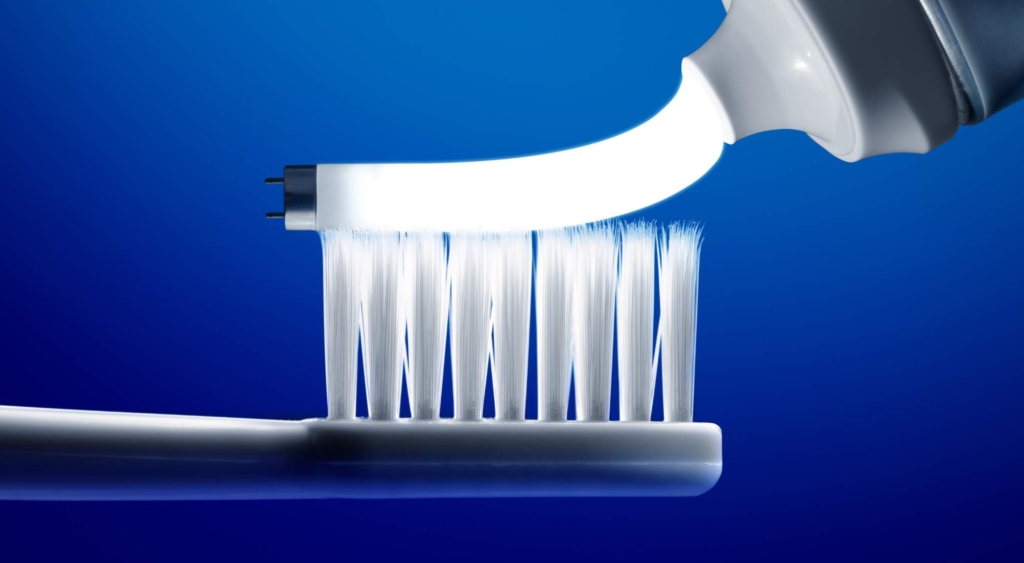Sensitive Gums: Symptoms, Causes, and Treatments for Periodontal Sensitivity
Every morning and night, as you diligently brush your teeth, you notice your gums bleeding. You look in the mirror, and your gums are puffy and red. The frustration and discomfort are exacerbated when attempts to floss only result in more bleeding. Despite following your oral care routine, the persistent issue raises questions about what might be causing it.
Sensitive gums are very common, so you are not alone. Understanding why gums can become sensitive can help.
Read on to discover the nuances of gum sensitivity, gain insights into potential causes, and find practical guidance on how to treat and alleviate sensitive gums.
Table of Contents
- What Are the Symptoms of Gum Sensitivity?
- Why Are My Gums So Sensitive All of a Sudden?
- What Is the Cause of Sensitive Gums?
- How Do You Treat Sensitive Gums?
- Mint Dental Works Can Help Minimize Your Gum Sensitivity With Regular Cleanings and Check-Ups
What Are the Symptoms of Gum Sensitivity?
It’s important to distinguish gum sensitivity and tooth sensitivity. While they can coexist, they are separate conditions with different symptoms, causes, and treatments.
- Tooth Sensitivity: Involves pain associated with the dentin itself, often experienced when consuming hot or cold drinks or foods.
- Gum Sensitivity: Associated with the gums, typically noticeable during brushing or flossing.
Those who experience gum sensitivity may notice the following symptoms:
- Inflammation
- Redness
- Bleeding
- Bad breath
Why Are My Gums So Sensitive All of a Sudden?
Gum sensitivity can be the result of plaque buildup or long-term dental issues. However, sudden sensitivity may be linked to dietary or lifestyle changes. Possible causes include:
- Changing toothpastes
- Consuming more foods that trigger gum sensitivity
- Sleeping with an open mouth due to allergies or illness
What Is the Cause of Sensitive Gums?
Gum sensitivity is mainly caused by plaque buildup, leading to inflammation from bacteria. However, it’s important to note that other factors also play a significant role. Dental conditions, lifestyle choices, and health factors collectively contribute to the sensitivity of gums.
11 Issues That Can Make Your Gums Sensitive
#1: Gingivitis
This is the initial stage of mild gum disease caused by plaque buildup. Bacteria within the plaque consume sugars and release acidic byproducts, leading to inflamed and swollen gums.
If you have decay below the gum line, those areas tend to trap plaque. They can also be more prone to inflammation and sensitivity. If untreated, gingivitis can progress to periodontal disease.
#2: Periodontitis
Gingivitis can turn into periodontal disease if left untreated. This occurs when plaque extends below the gum line, sparking an inflammatory response in the supporting tissue.
Gaps known as gum pockets form between the teeth. These pockets can become deeper, which allows more bacteria to accumulate and escalate the severity. Eventually, this can lead to bone loss and tooth instability. In some cases, this ultimately results in the loss of a tooth.
While gum sensitivity is a symptom of periodontal disease, it can also contribute to other serious systemic health issues. Chronic inflammation is known to play a role in serious health complications such as cardiovascular disease.
Nearly half of Americans aged 30 or older experience periodontal disease, and this figure rises to 70% among those aged 65 and older.
#3: Restorative Dental Work
Pain or discomfort after restorative dental work or deep cleaning is not uncommon. The manipulation of gums during the procedure may lead to temporary soreness or tenderness.
This discomfort is a normal part of recovery and does not necessarily mean there is an underlying issue. Continue with proper oral hygiene and always follow your dentist’s post-procedure recommendations. If the gum sensitivity persists long after the procedure, consult with your dentist.
For specialized and attentive dental care, consider the comprehensive services offered by Mint Dental Works. Our experienced team ensures a seamless blend of expertise and comfort in your dental journey, providing personalized solutions for optimal oral health.
#4: Lichen Planus
Lichen planus, a relatively common yet not fully understood disease, affects the nerve endings in gum tissue, causing inflammation and sensitivity. While the cause remains unknown, factors such as certain medications, hepatitis C, reactions to metal fillings, or autoimmune reactions may be involved.
Beyond gum sensitivity, this condition manifests in symptoms affecting the skin, nails, scalp, and genitals. While no cure exists, remedies — including prescribed Miracle Mouthwash with viscous lidocaine — can help alleviate symptoms by numbing gum tissue and easing pain.
#5: Dietary Changes/Types of Food You Eat
In the summertime, you can’t resist the refreshing taste of citrus or a cold soda to beat the heat. Perhaps, you indulge in more sweet treats during your summer vacation. However, as you savor these delights, you start to notice increased gum sensitivity.
The impact of your food choices on teeth and gums is significant. Here are some considerations:
- Citrus is very irritating to gums.
- Hard and crusty bread can cause abrasions.
- Sticky candies and sugary items may lead to bacterial growth.
- Alcohol and carbonated drinks can dry out your mouth.
Be mindful of your choices for a healthier oral environment.

#6: Changing Toothpaste
You run out of toothpaste, and in the store, you notice several whitening toothpaste options. Without much thought, you decide to grab another brand off the shelf. Over the next few days, you start to notice sudden gum sensitivity.
Whitening toothpaste can be more abrasive on your teeth. Some contain charcoal, which is known to be abrasive. While whitening toothpaste can remove plaque or staining on your teeth, it can also wear down enamel.
You might need to try other toothpaste brands to find one that suits you. If you have questions, talk to your dentist.
#7: Tobacco
All tobacco products pose significant harm to both your teeth, gums, and overall health. Tobacco is linked to gum disease. Chewing tobacco or dip can be especially damaging to your gums as the product is in direct contact with them. This contact may prompt your gums to recede, forming pockets where bacteria accumulate and fostering gum sensitivity. Beyond this, the more severe consequence lies in the heightened risk of oral cancer associated with tobacco use.
#8: Sleeping With Your Mouth Open
Allergies or congestion from a cold may lead to sleeping with your mouth open at night, which can dry out gum tissue. Mucosal tissue needs to stay moist. When your gums dry, your mouth becomes more acidic (lower pH), and the bacteria grows.
This heightened bacteria presence increases the risk of gingivitis and, eventually, periodontal disease, impacting gum sensitivity. Conditions like obstructive sleep apnea and asthma can also result in a similar open-mouth sleeping position.
#9: Diabetes
Uncontrolled diabetes leads to high blood sugar, fostering plaque growth due to increased glucose (sugar) in your saliva. This elevated sugar environment contributes to a higher concentration of bacteria in your mouth. Diabetes also impacts saliva production. The decrease in saliva promotes bacterial growth. It is important to talk to your dentist about diabetes and its impact on your oral health for tailored guidance and preventative measures.
#10: Hormonal Changes
Fluctuations in hormone levels during pregnancy, menopause, and menstruation can heighten blood flow to your gums, making them more susceptible to plaque buildup. Increased sensitivity and a higher likelihood of bleeding during brushing or flossing may occur. Maintaining consistent oral hygiene practices becomes crucial during these hormonal changes along with regular dental visits and cleanings to ensure optimal gum health.
#11: Stress
Stress affects all body systems, triggering elevated cortisol levels. Prolonged elevation of cortisol can induce an inflammatory reaction in your body, including your gums. During stressful periods, you may observe increased gum sensitivity. Taking steps to manage stress levels can contribute to your overall well-being including the health of your gums.

How Do You Treat Sensitive Gums?
The treatment for gum sensitivity depends on the root cause. But for most individuals, especially when it is linked to plaque buildup and gum disease, the most effective treatment approach involves regular dental cleanings, maintaining good oral hygiene practices, and consulting with your dentist for personalized guidance.
There are things you can do to maintain regular oral hygiene habits and promote overall dental health. This includes:
- Brushing your teeth at least twice a day
- Flossing once per day
- Consuming a well-balanced diet
- Avoiding foods that can be abrasive to your gums
- Scheduling regular dental appointments at least twice a year for cleanings
- Opting for a soft-bristled toothbrush
- Selecting toothpaste designed for sensitive teeth and gums
- Using Miracle Mouthwash (obtain a prescription through your dentist)
- Avoiding tobacco products
- Reducing stress
- Drinking water throughout the day and after meals
- Trying strategies to sleep with your mouth closed and promote nasal breathing
- Using a humidifier at night to help with allergies and congestion
Always consult with your dentist if you are experiencing gum sensitivity. Your dentist can assess the specific factors contributing to your sensitivity, recommend treatment approaches, and provide personalized guidance on maintaining oral health.
Mint Dental Works Can Help Minimize Your Gum Sensitivity With Regular Cleanings and Check-Ups
If you’re grappling with the pain of gum sensitivity, understanding the root cause is key. It’s not always a straightforward issue, as many factors can impact your gum health. At Mint Dental Works, we specialize in unraveling the complexities.
Our commitment to exceptional patient care extends beyond symptom relief — we aim to identify and address the underlying factors contributing to your gum sensitivity. Let us guide you to lasting solutions resulting in a healthier, more comfortable smile.
Mint Dental Works stands out for its environmentally friendly approach to dentistry. We integrate high-tech, sustainable methods into our practices, minimizing our environmental footprint while ensuring top-notch dental care for our patients.
Schedule your appointment today and experience personalized, eco-conscious dental care at Mint Dental Works. If you are experiencing gum sensitivity, Mint Dental Works is here to provide you with comprehensive care.
The content in this blog is not intended to be a substitute for professional medical advice, diagnosis, or treatment. Always seek the advice of your physician or other qualified health provider with any questions you may have regarding a medical condition.

